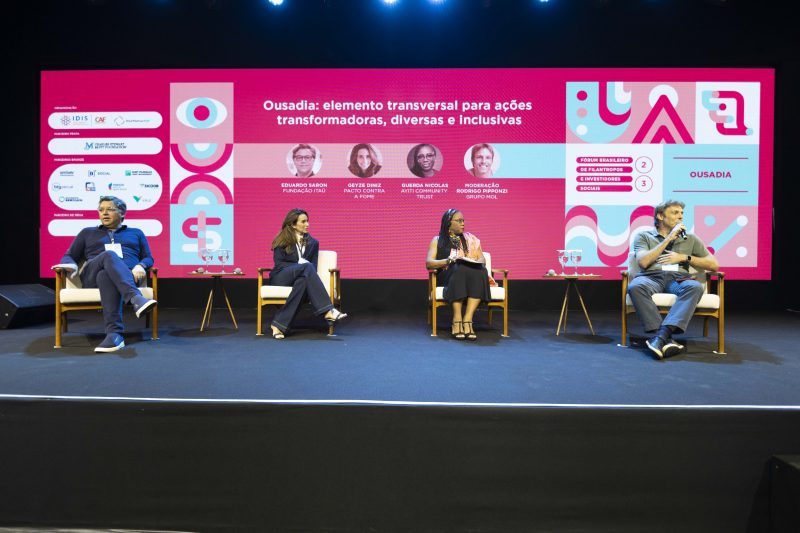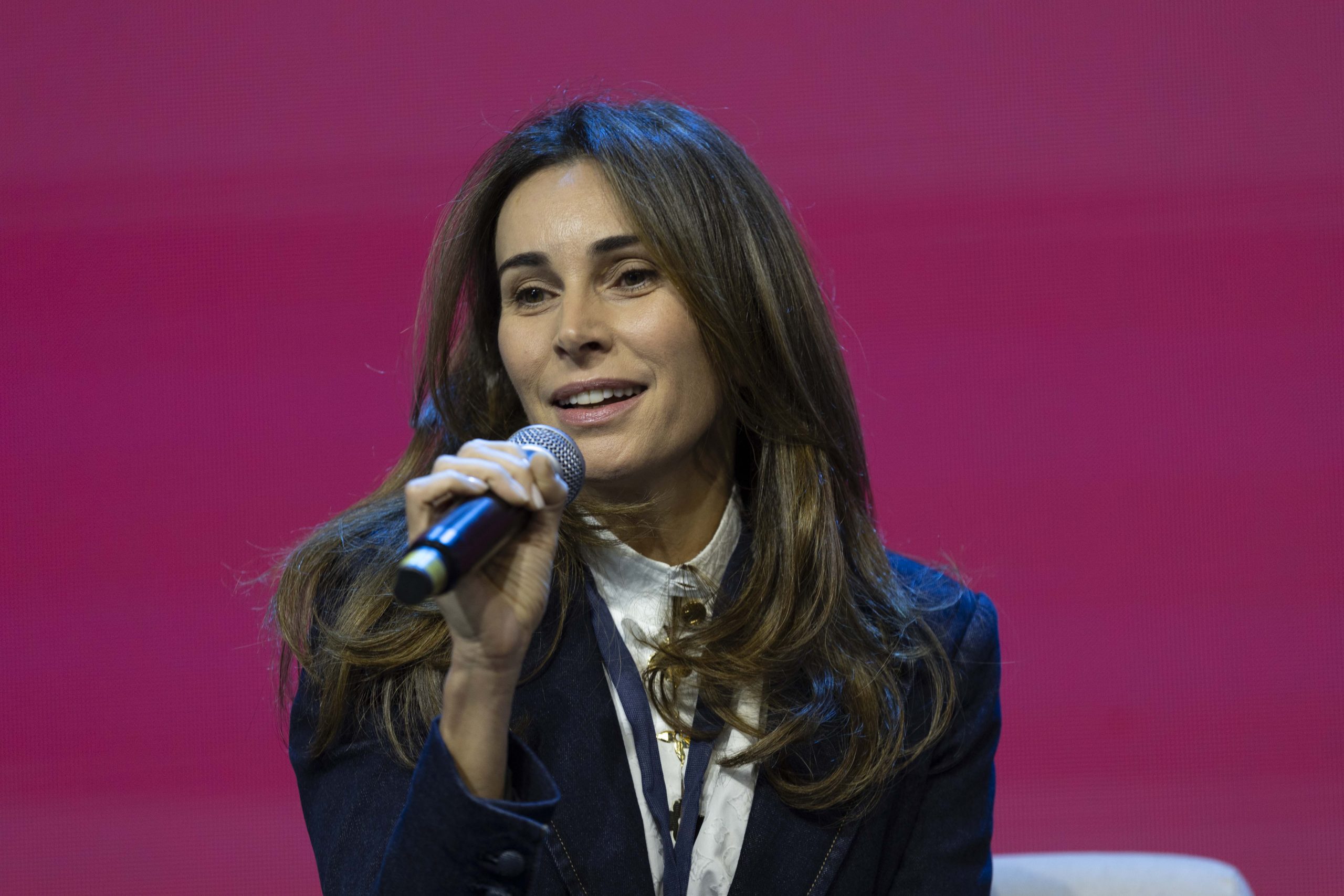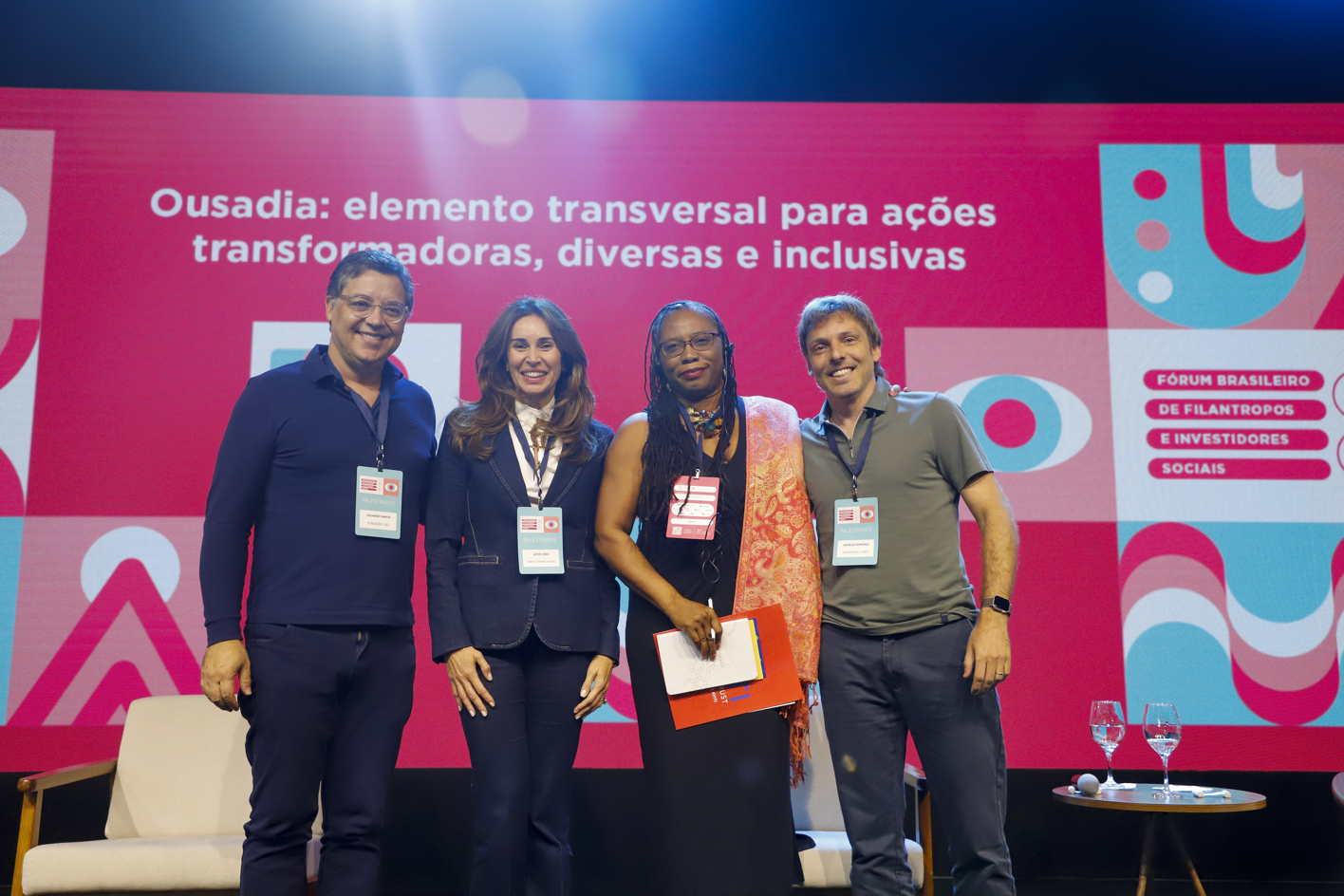On Thursday, September 14th, IDIS hosted another edition of the Brazilian Philanthropy Forum. Highlighting the theme of ‘boldness’, the event took place in São Paulo and saw the participation of representatives from various sectors in Brazil and around the world, focused on discussing how we can advance Brazilian Private Social Investment. In addition to the in-person event, the program was livestreamed, reaching approximately 1,900 people across the country throughout the day.
The first panel heated up the discussions by addressing the overall theme of the event, ‘Boldness: a cross-cutting element for transformative, diverse, and inclusive impact’, and featured prominent members: Eduardo Saron, President of the Itaú Foundation, Geyze Diniz, Co-Founder of the Pact Against Hunger, Guerda Nicolas, Co-Founder of the Ayiti Community Trust, and Rodrigo Pipponzi, President of the Board of the MOL Group, who also served as the panel moderator.
It is evident that the social sector, especially after the COVID-19 pandemic, is vibrant and more active than ever. However, even though there are already numerous successful social interventions, do the magnitude and seriousness of current problems demand more boldness in our actions?
Seeking to initiate discussions around these questions, the opening panel of the Forum presented provocations from those who are not in their comfort zone and have dared in philanthropy.
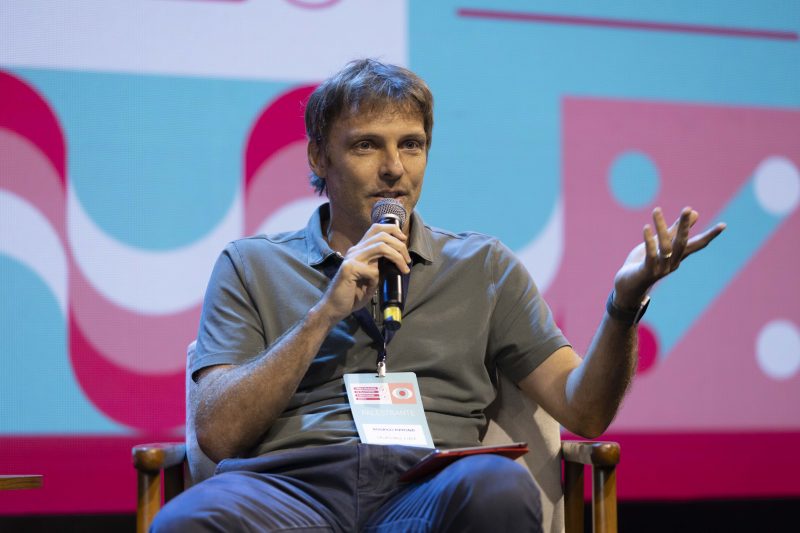 What is boldness, after all? In his opening remarks, the moderator, Rodrigo Pipponzi, highlighted that:
What is boldness, after all? In his opening remarks, the moderator, Rodrigo Pipponzi, highlighted that:
“Perhaps boldness lies in a place where we do more and think a little less, responsibly, of course, but prioritize practice and experience to seek the innovation we need in the field”.
And that’s what the speakers brought with their examples.
On the other hand, Geyze Diniz presented the Pact Against Hunger, launched last year and co-created by her and 40 other individuals.
“It was due to the discontent of being a rich country, producing food, exporting food, having the resources, but at the same time, we have 33 million Brazilians who go hungry every day, and on top of that, we waste eight times what would be enough to feed this population”.
Undoubtedly, it is a bold initiative by Geyze and her colleagues, who have the goal of eliminating hunger in the country by 2030 and ensuring good nutrition for everyone by 2040. The Pact Against Hunger sought to differentiate itself from other organizations by promoting synergies among initiatives from the third sector, the private sector, and the public sector. Today, in partnership with UNESCO and the Food and Agriculture Organization of the United Nations (FAO), the Pact Against Hunger awards initiatives to bring visibility to ongoing projects.
Eduardo Saron from the Itaú Foundation emphasized the need to look at our reality and our data.
“For example, every day, a ‘Canada’ worth of students goes to Brazilian public schools. There are 35 million children from preschool to high school attending public schools. ‘A Mato Grosso’ (Brazilian state with approximately 3 million inhabitants) worth of teachers receives these students. These numbers are fantastic and very powerful”.
However, Brazil has low levels of educational quality and is progressing slowly to reverse this situation. It is urgent, then, that we adopt differentiated and transformative measures. That’s why boldness is crucial.
Coming directly from Haiti, Guerda Nicolas captivated the audience by explaining that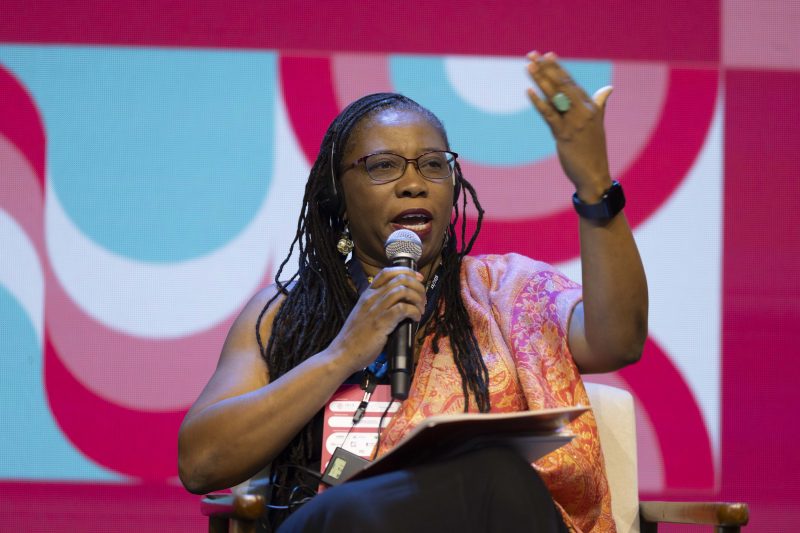 when people meet in Haiti, it is customary for one person to say “Onè,” and the other responds with “Respè”; this is a greeting that signifies honor and respect. It is precisely with honor and respect that the Ayiti Community Trust (ACT) has been a force for transformation and is a pioneer in leveraging and empowering local people. ACT promotes a model of sustainable funding, enabling long-term planning and thus setting itself apart from traditional organizations in the country. Most importantly, ACT seeks to promote the potential of Haitian communities, giving voice to the locals and fostering a culture of ownership and pride, allowing them to chart their own paths and take control of their narratives:
when people meet in Haiti, it is customary for one person to say “Onè,” and the other responds with “Respè”; this is a greeting that signifies honor and respect. It is precisely with honor and respect that the Ayiti Community Trust (ACT) has been a force for transformation and is a pioneer in leveraging and empowering local people. ACT promotes a model of sustainable funding, enabling long-term planning and thus setting itself apart from traditional organizations in the country. Most importantly, ACT seeks to promote the potential of Haitian communities, giving voice to the locals and fostering a culture of ownership and pride, allowing them to chart their own paths and take control of their narratives:
“ACT believes that we can create our own ideas, and isn’t that bold? (…) We are building trust within communities. It’s a trust that black nations can lead, and that individuals can trust a black individual with millions of dollars and believe that we can truly deliver something”.
In common, the three panelists emphasized the importance of listening to everyone, considering and respecting various forms of knowledge, and looking at the potential of local communities. It is crucial to promote a participatory management model, prioritizing synergy among various individuals and sectors. Being bold means addressing critical issues related to education and hunger, for example, as everyone’s problem, never losing hope that they can be solved, and above all, daring to trust local strengths by bringing them to the center of their own decisions.
Want to learn more? Watch the full session:

